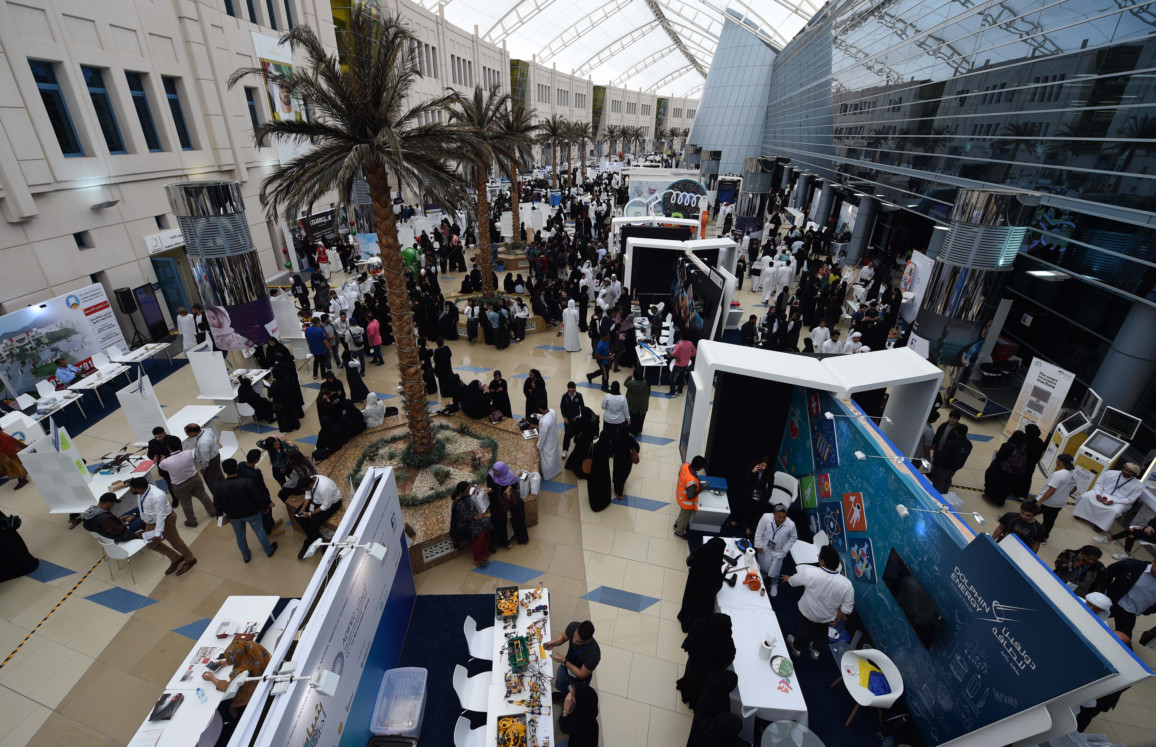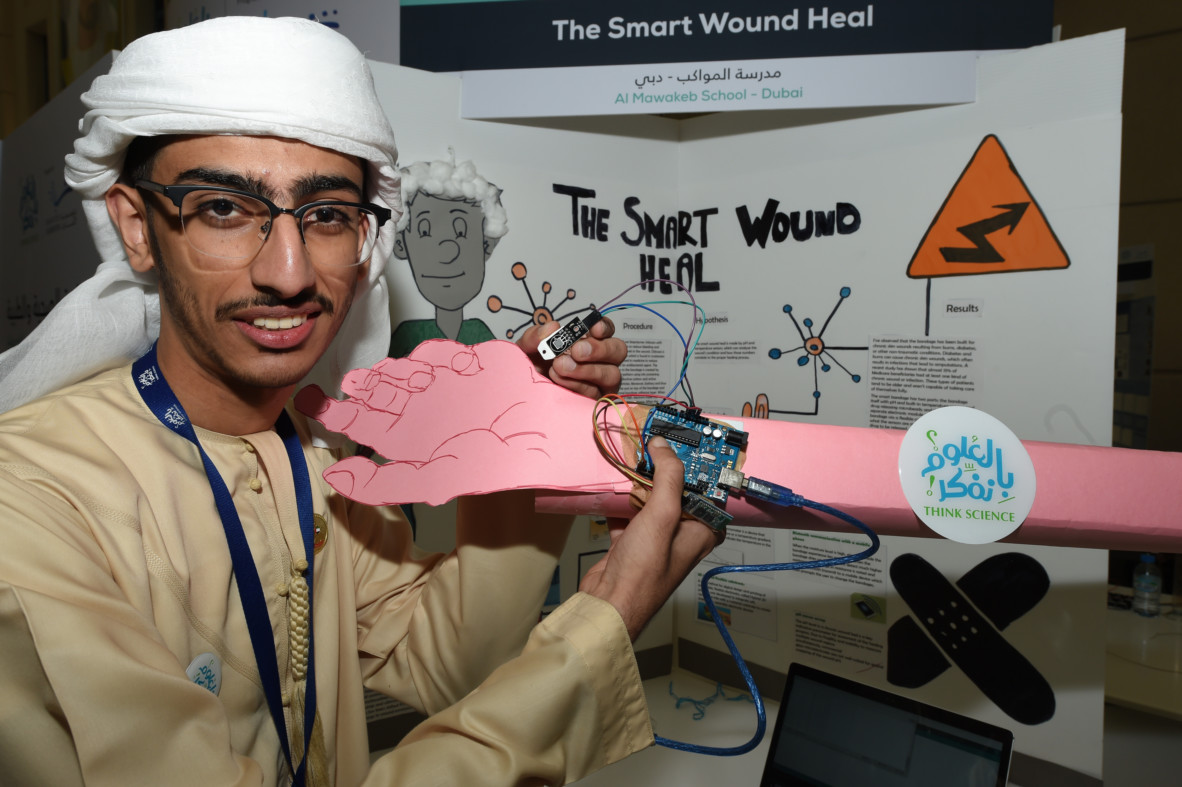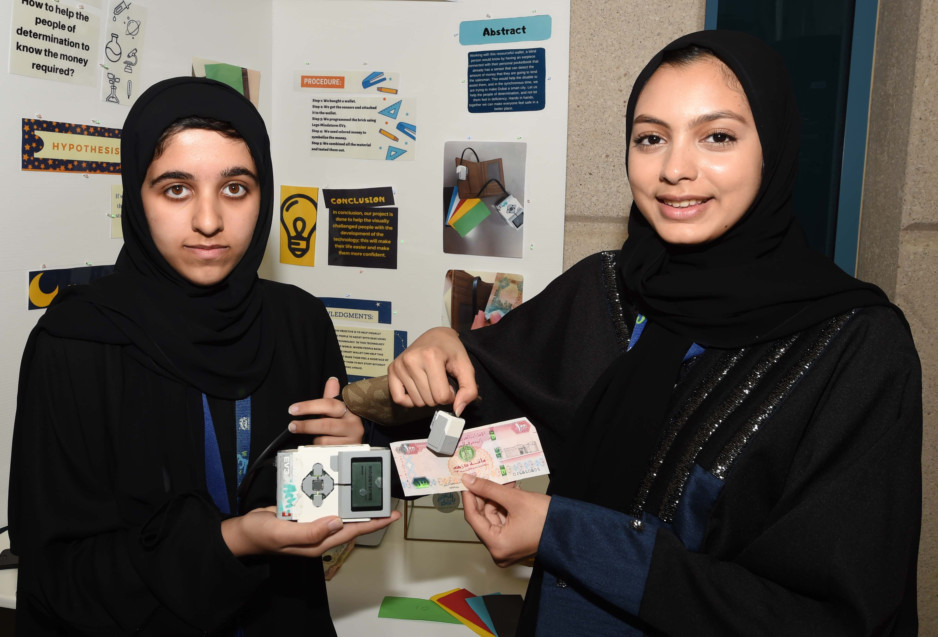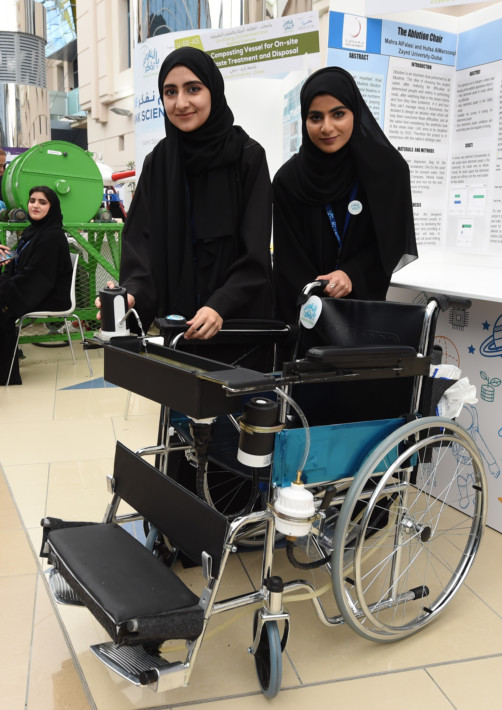Several innovative problem-solving projects on show at annual fair
Dozens of student projects aimed at solving real-life problems were showcased at the Think Science Fair at Zayed University in Dubai on Sunday.
Following Dubai, the fairs will take place in Abu Dhabi (February 24), Sharjah (March 3), Ras Al Khaimah (March 10), Fujairah (March 17), and Ajman and Umm Al Quwain on (March 21).
A total of 700 finalist projects representing the work of more than 1,850 students from schools and universities from across the UAE will be featured at the seven fairs.
The annual fair is held under the patronage of Shaikh Abdullah Bin Zayed Al Nahyan, Minister of Foreign Affairs and International Cooperation, who is also chairman of Emirates Foundation, which organises the fair in partnership with the Ministry of Education.

Under the theme of ‘Seven Fairs for Seven Emirates’, Think Science will take place across all emirates this year. A judging committee will review the projects in each emirate to determine the winners within each emirate, who will then be recognised at an award ceremony later this year.
Shaikh Sultan Bin Tahnoun Al Nahyan, managing director of Emirates Foundation, said: “At Emirates Foundation, we strive to engage an ever-growing number of schools and universities from across the nation in the Think Science competition and fairs to build awareness about the importance of STEM and encourage youth to explore science education and careers.”
Speaking at the fair, Maitha Al Habshi, CEO of Emirates Foundation, said: “Our Think Science programme aims to provide youth with a platform to deploy new technologies and unlock their creativity in Science, Technology and Innovation (STI).”
Promising prototypes
‘The Smart Wound Heal’ by Mohammad Abdul Razaq, Al Mawakeb School, Dubai

A small sensor on wound dressings sends out an alert to go see a doctor if the wound is getting worse. Detectors in the sensor, which can be synched to a smartphone app through Bluetooth, constantly read temperature, humidity and acidity levels of the wound. Based on the readings, the senor analyses the wound’s condition to monitor the healing process. If the readings are abnormally high or low, the sensor will send out an alert (sound or notification) that the dressing needs to be changed or advising that a doctor should be consulted.
‘Smart Wallet’ by Aya Khalifa Al Falasi and Mariam Obaid Al Hammadi, Al Ittihad Private School, Dubai

Designed for the blind, the smart wallet has an optical reader that ‘sees’ what currency note is being put inside or pulled out of the wallet. The wallet then tells its owner, through an earpiece, what the note is — a Dh10 note or Dh500 note, for example. “We got this idea from seeing social experiment videos that showed blind people being victimised by people who were giving them back the wrong change of money. So we wanted to help the blind people live with confidence in a happy country,” Al Falasi said. Al Hammadi said: “We did all the research and programmed the wallet to recognise the UAE currency through the different colours of the notes.”
‘The Ablution Chair’ by Mahra Al Falasi and Hufsa Al Marzouqi, Zayed University, Dubai

People of determination, the elderly and the ill who are in a wheelchair find it difficult to perform the ablution of prayer by themselves. Instead of being lifted from the wheelchair to perform the ablution, what if they could discretely do the ritual while seated in the wheelchair itself? Al Marzouqi: “After seeing the struggle of the people of determination in ablution, we decided to do our project. We designed the wheelchair in a way that doesn’t attract attention.” The colours of the design and ablution components are black to match the wheelchair. An arm rest coverts into a rectangular sink for collecting water, which is pumped from a small bottle. A similar design is made for the footrest. The water is recycled by filters in the wheelchair.
Source: Gulf News
